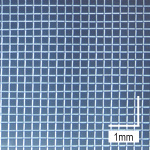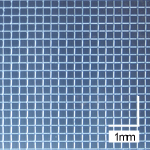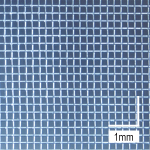Our woven mesh filters represent filters for beverage purposes that utilize a uniform opening to fully bring out the flavor of the original ingredients. Our lineup, which began with our TEAROAD filter made from nylon, currently include products that incorporate heat sealing properties and biodegradability.
TEAROAD®SOILON®
TEAROAD SOILON is a filter made with the biomass material known as polylactic acid, the base material of which is plant starch.
Burying this product into the ground after use causes microorganisms to completely break it down after being hydrolyzed into shoter fragment. Such is the nature of this filter for beverage use created with mankind and the environment as a top priority.
| Product number | SL-A1 |
|---|

TEAROAD®SHARP
Our TEAROAD®SHARP filter is a transparent mesh filter woven together using polyester fibers.
The superior shape-retaining properties of this tea bag filter make it ideal for processing Tetrahedral bags, and enable the tea leaves to spread while bringing out genuine flavor.
Furthermore, the SHARP 5100 can be used to produce pre-made bags possible through the use of heat sealing.
| Product number | 4817,5100 |
|---|

Q&A
- What is the difference between woven mesh filters and nonwoven fabric filters?
- Woven mesh filters have a uniform opening and particularly excellent extraction properties. Conversely, Nonwoven Fabric Filters are suitable for packing in fine basic ingredients, and also tend to be less expensive than woven mesh filters.
- Do you have any woven mesh filters that can be heat-sealed?
- Our TEAROAD SHARP 5100 accommodates heat sealing.
- How many years does it take for SOILON to degrade?
- The speed of degradation varies largely depending on the temperature, moisture and PH level of the soil, as well as the types and number of microorganisms present. It is generally established that SOILON structurally breaks down between two and four years when in soil or water.
- Why are three types of woven mesh filters -- SOILON, SHARP and TEALOAD -- available?
- The raw materials of all three differ, as does their respective processing suitability using a filler. SOILON, which incorporates biomass material (polylactic acid) originating from plants, is biodegradable. The raw materials of all three differ, as does their respective processing suitability using a filler. SOILON, which incorporates biomass material (polylactic acid) originating from plants, is biodegradable.


